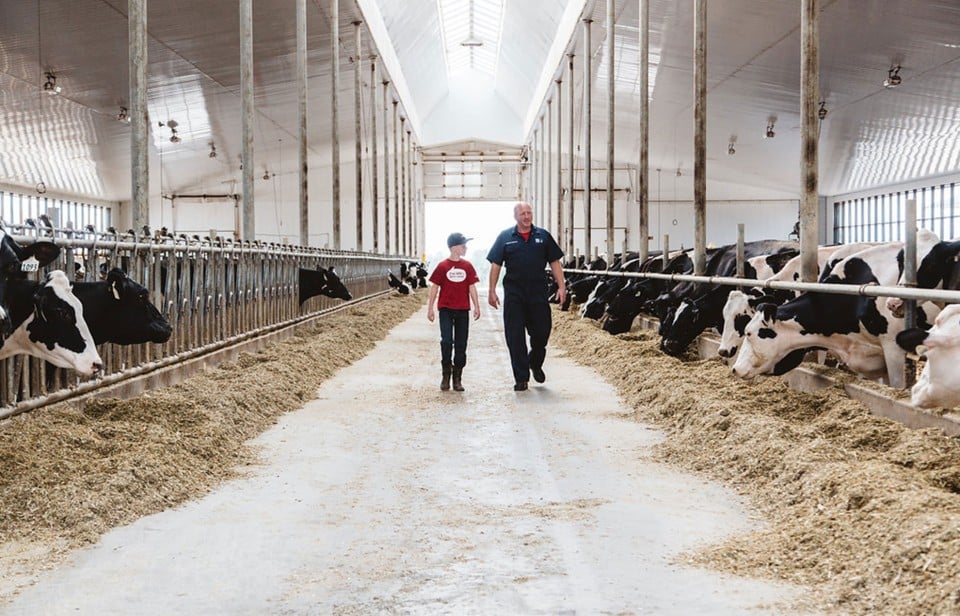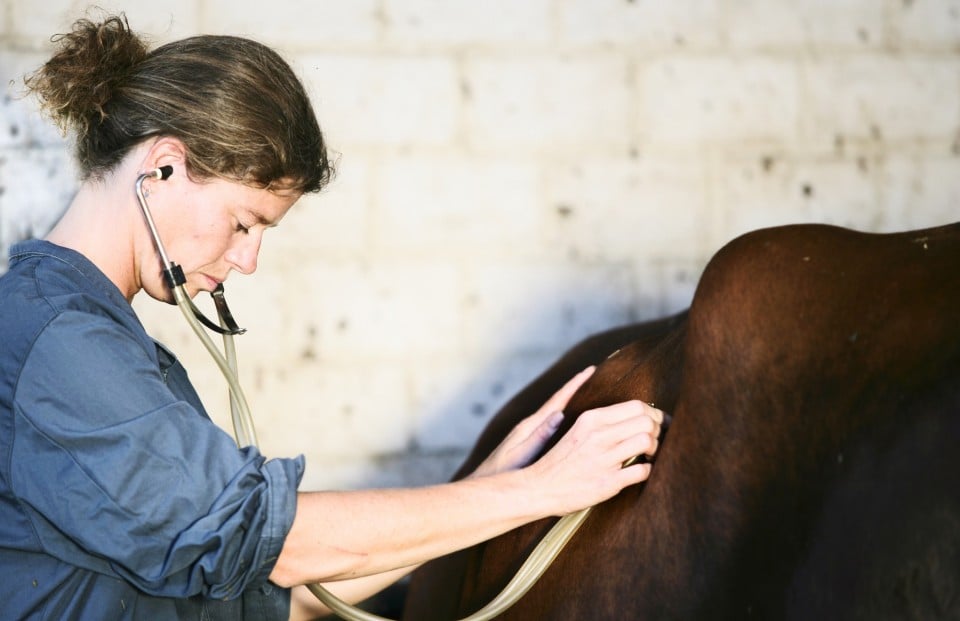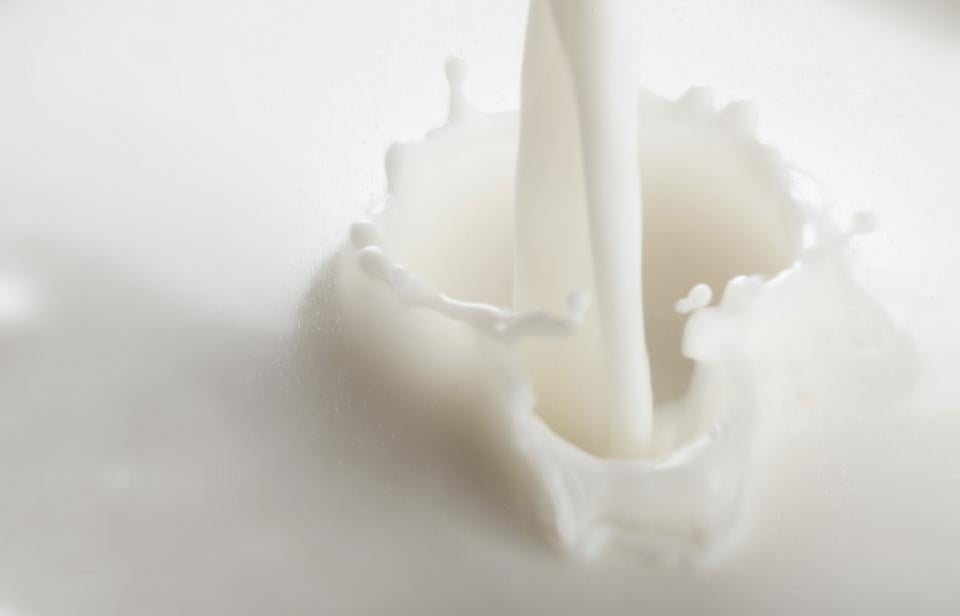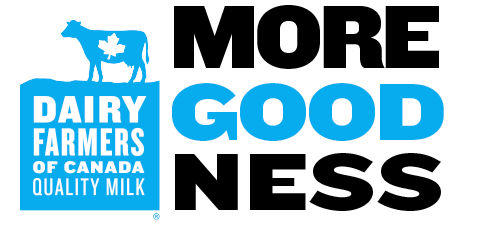Highlights
- Over 98% of Canadian farms are family owned
- Strict Canadian dairy farming standards help ensure our farmers deliver high quality milk and provide good care for their cows
- Our farmers’ commitment: 100% Canadian milk, safe from antibiotics and produced without artificial growth hormones.
- Enjoying Canadian dairy is a simple way to lower the distance your food travels to get to your table and to support the local economy
When it comes to Canadian dairy, the journey is more important than the destination. We can feel confident that the milk we drink for breakfast and that goes into making the delicious cheeses we enjoy as a snack, makes its way through many steps and processes before reaching us. Let’s explore what these processes are, and how they enhance the quality of our Canadian dairy.

Quality farms, quality milk
You could say that Canadian milk is a family affair. Over 98 percent of Canadian farms are family owned and passed down from one generation to the next. It’s only natural that when it comes to the milk they produce, attention to quality runs in the family.
In addition to strict government regulations, Dairy Farmers of Canada and its members, the provincial dairy farmer groups, have established further quality assurance programs that farmers must follow by implementing their own food safety measures on the farm.
As quality standards in dairy farming are continuously evolving, on-farm validators regularly verify that farm practices meet these standards, ensuring the highest quality milk, best care for cows, and sustainable farming practices.
Naturally delicious
“Antibiotic-free” is a word that gets tossed around a lot. But what does it mean? Should we worry about antibiotics in food? In short, no. Let’s take milk for example. If a cow becomes ill and receives treatment with antibiotics, farmers must clearly identify her (often with a red Velcro band on her hind legs). That way whoever is milking her knows to immediately discard her milk. The milk from the treated cow will continue to be discarded for a specific period of time referred to as the ‘withdrawal period’. That cow’s milk will not get into the supply chain, meaning it will never reach the processing plant, and certainly won’t make it to the grocery store. In a nutshell (or rather, a carton,) you will not come in contact with milk from a cow being given antibiotics.
Canadian law also strictly prohibits the use of artificial growth hormones. While these hormones have no proven adverse effects on human health, science has shown they can have a negative impact on the health and welfare of cows. Some countries still allow the use of artificial growth hormones, which is why many Canadians think it’s best to drink local Canadian milk.

Regular veterinarian visits keep cows in the best of health
The quality of our milk starts at the source, and that means ensuring cows are their healthiest. Dairy farmers must demonstrate that they work with a veterinarian in order to be allowed to ship milk. Veterinarians have several roles on the farm, visiting some farms as often as twice a month to help farmers keep their cows in top shape. In fact, most Canadian dairy cows see their doctor more often than we humans see our family doctors! Those are some healthy cows.
While the milk sold in grocery stores has already passed several quality assurance tests, there’s another way vets and farmers make sure cows are healthy: by testing their milk’s Somatic Cell Count (SCC). Somatic cells are the equivalent in milk of what white blood cells are in blood – the level is an early indicator if the cow is fighting off an infection or stress. Canadian milk is sold with SCC counts well under the federal allowance, which is in line with the level of many other countries to ensure that the cow is as healthy as possible.
Less travel time means fresher milk
Canada implemented the supply management system back in the 1960s to ensure farmers produce enough milk to meet the demand of consumers for milk and dairy products.
Every 2 days, milk is picked up at the farm. The insulated milk truck keeps the milk cold until it is offloaded at the processing plant.
The production of local Canadian milk has a few sustainability benefits. Milk travels the shortest distance possible from the farm to the plant to be pasteurized, packaged in milk containers or made into dairy products. This reduces the ‘food miles’ and ensures milk is typically delivered fresh to stores in nearby cities every day.
Why make Canadian dairy a regular part of your lifestyle? Each sip of milk you drink is naturally delicious, made to some of the highest safety and quality standards, helps support family farms and contributes to the local economy. That’s something we can all feel good about.
Sources
Alberta Milk. "What is the difference between Canadian and American milk?" albertamilk.com
https://albertamilk.com/ask-dairy-farmer/difference-canadian-american-milk/
Holstein Canada. "The Canadian Dairy Industry." holstein.ca
https://www.holstein.ca/Public/en/About_Us/The_Canadian_Dairy_Industry/The_Canadian_Dairy_Industry
The National Farm Animal Care Council. "Code of Practice for the Care and Handling of Dairy Cattle." nfacc.ca





